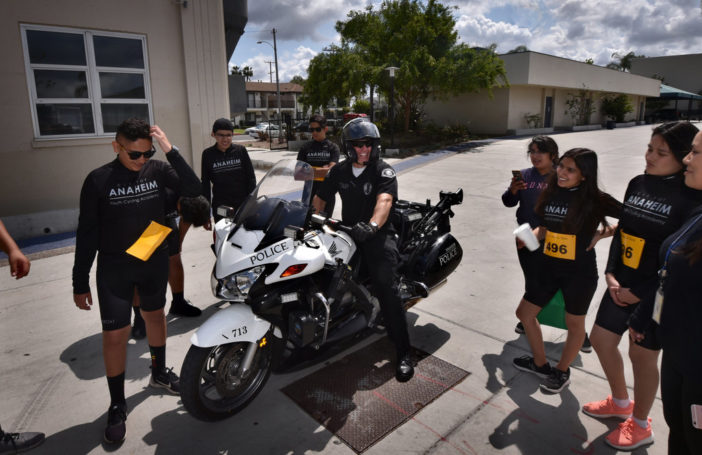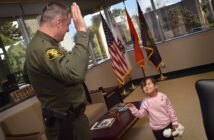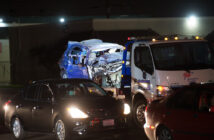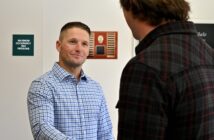The mission of the Anaheim Police Department’s Traffic Unit is to keep drivers and the public safe. And the agency doesn’t just rely on handing out tickets to get the job done.
The Traffic Safety program offers an array of outreach activities to engage the public through participation and education.
“The fundamental goal is really to try and reach as many segments of the population as possible,” said Traffic Unit Sgt. Rod Duckwitz.
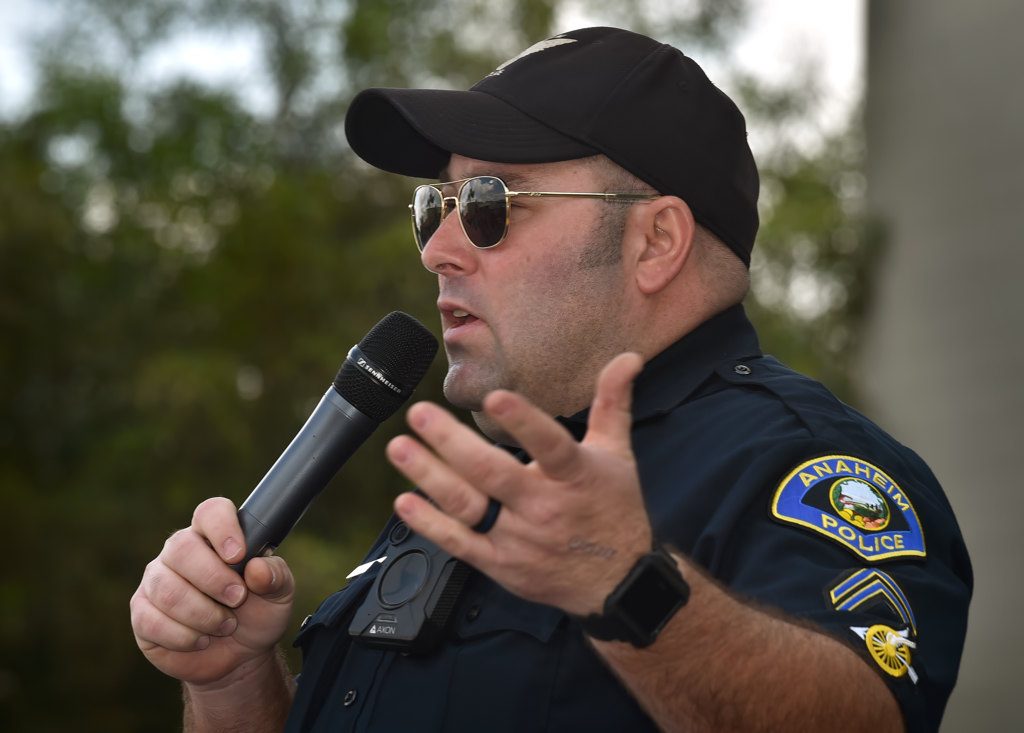
Anaheim PD Officer and Motor Inspector Shane Spielman talks to kids at Anaheim High School about cycle safety during the recent Colony Bike-A-Thon.
Photo by Steven Georges/Behind the Badge OC
Some of the activities offered through the agency’s Traffic Unit are the car seat program, the Car Show Fundraiser, bicycle registration, bike and pedestrian safety demos, and Know Your Limit bar and restaurant events.
“We try to have a branch for every stage in life,” Duckwitz said. “Everyone needs a little something different.”
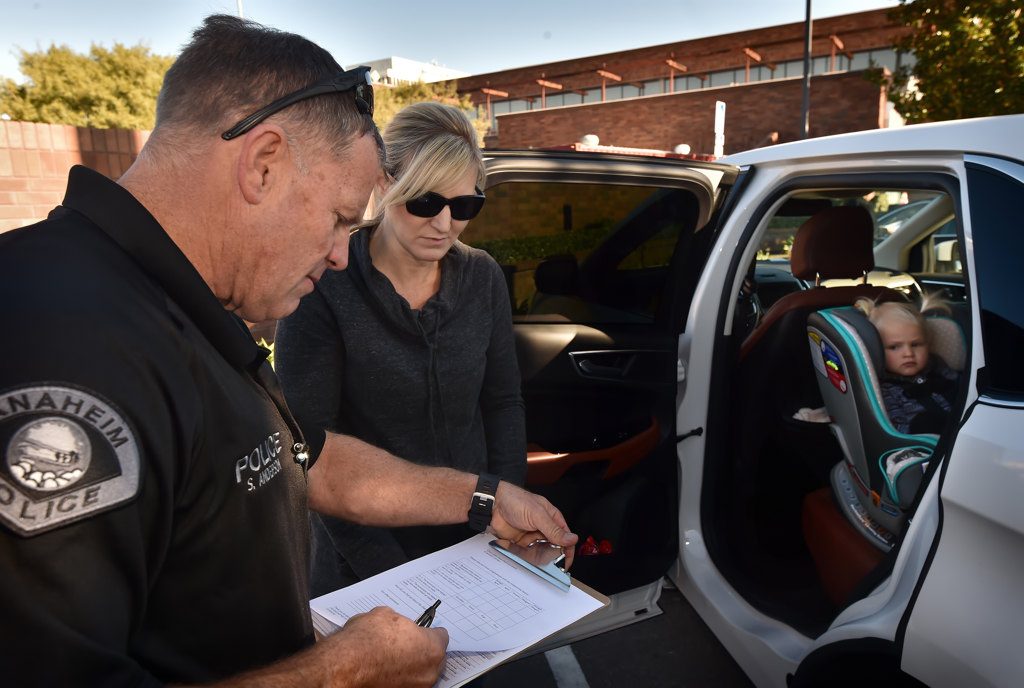
In this file photo, Anaheim PD Officer Steve Anderson runs through the car seat inspection checklist with Mindy Schwering of Anaheim as her 2-year-old daughter, Emma, watches from her car seat.
Photo by Steven Georges/Behind the Badge OC
APD’s car seat program is available to Anaheim residents who use children’s car seats, free of charge. Parents can have their car seats inspected by a certified car seat technician who also can help them find the right seat and let them know about car seat expiration dates and recalls. If the technician finds a car seat is not safe, the agency will donate a seat free of charge to parents unable to afford a new one.
“We don’t let any child leave our inspection site that’s not safe,” Duckwitz said.
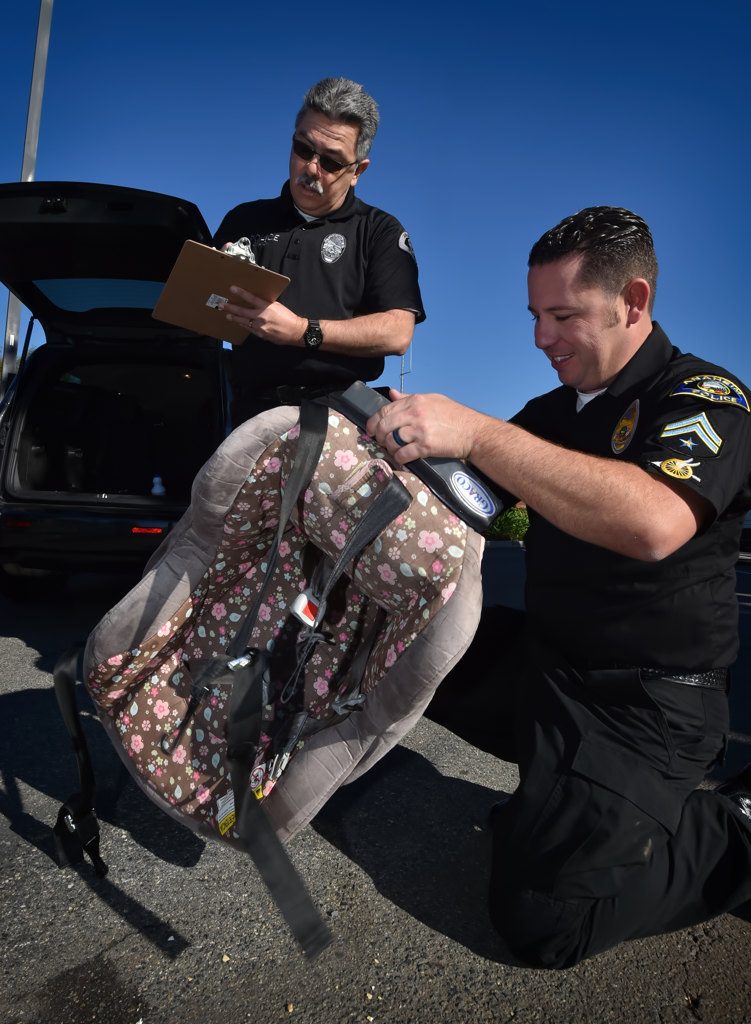
In this file photo, Anaheim PD Officers Oscar Ayon, left, and Steve Anderson inspect a car seat at the Anaheim PD’s car seat inspection station. Photo by Steven Georges/Behind the Badge OC
The program offers monthly inspections at the station as well as Traffic Safety presentations three to four times a month at a local school with a focus on child passenger safety.
“That’s something we’re passionate about here,” he said.
The bike and pedestrian safety demonstrations is another Traffic Safety program, this one geared toward elementary school children. In addition to the bicycle and pedestrian education information, motor officers attend and perform a riding competition for the students.
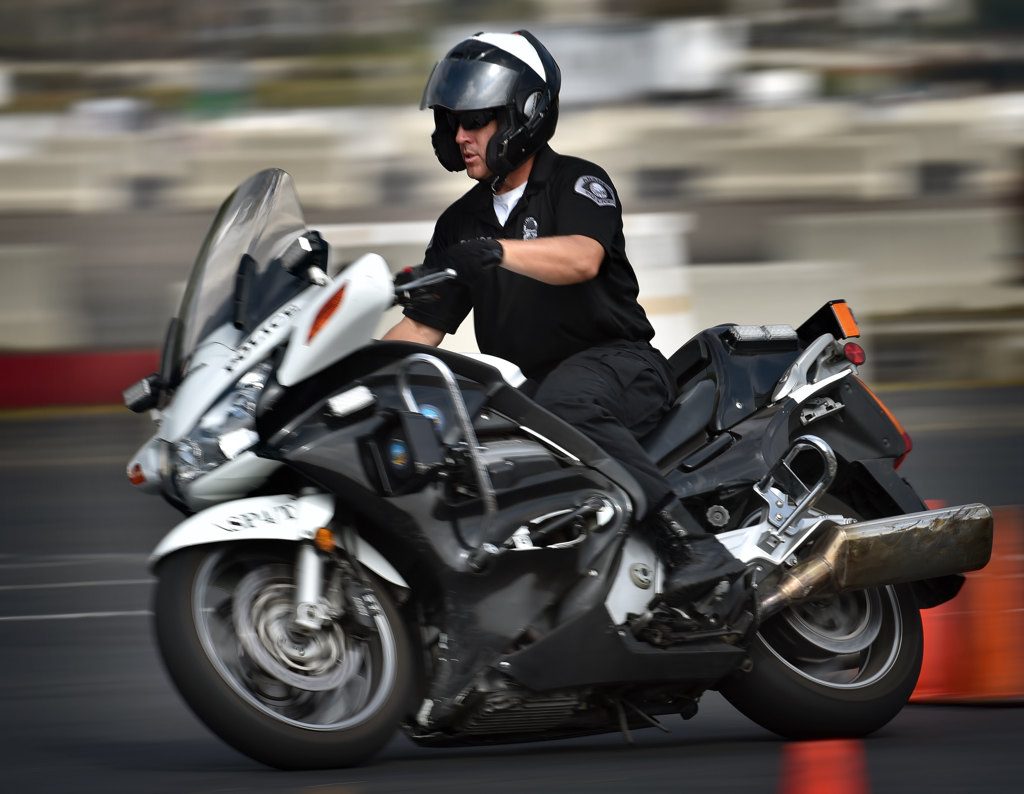
In this file photo, Anaheim PD Sgt. Rick Boyer makes his way through the 30 Cone Weave, part of Anaheim PD’s motor school.
Photo by Steven Georges/Behind the Badge OC
Know Your Limit takes place at local bars and restaurants with the goal of raising awareness about local driving laws. Officers can perform voluntary breath tests so participants may try and guess their blood alcohol levels.
“It’s OK to drink, it’s OK to have fun, enjoy yourself … just be safe,” said Duckwitz.
The Car Show Fundraiser on April 15 was a collaborative effort of officers putting on a car show, including live bands, cars, motorcycles, as well as car seat check-ups.
“It’s just a great, fun event for us to blend Traffic Safety and community interaction,” he said.
At the car show event, there were officers on horses from the Mounted Unit, bike demonstrations and a pancake breakfast. The event was open to the public at the City National Grove of Anaheim.
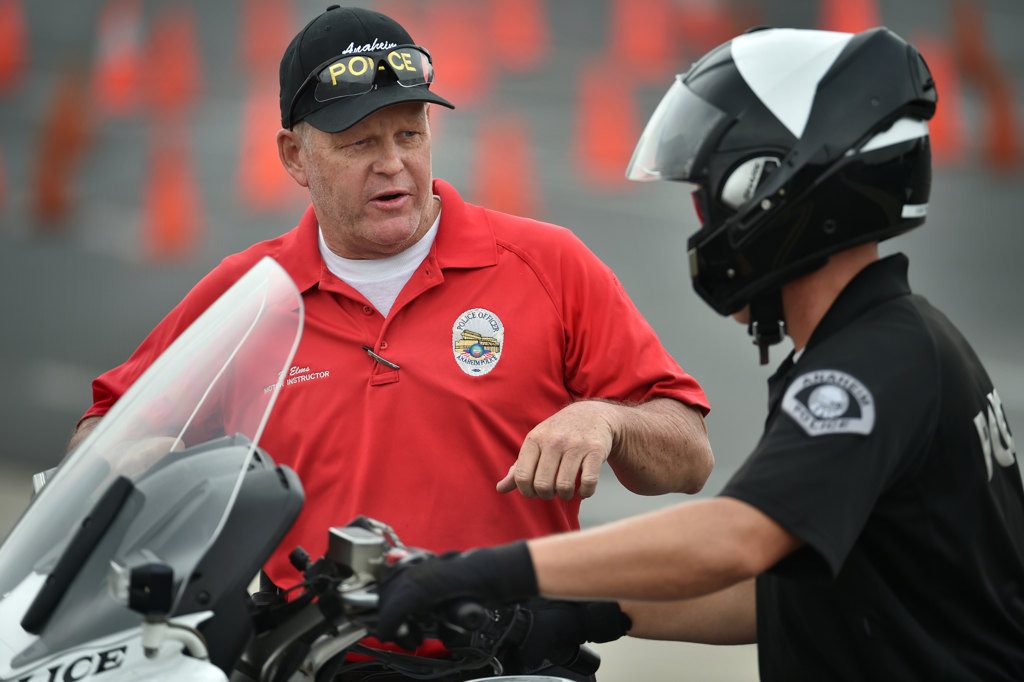
In this file photo, Anaheim PD Motor Instructor Doug Elms gives advice to Anaheim Sgt. Rick Boyer on how to run through the Incline Pullout course during Anaheim PD’s motorcycle school.
Photo by Steven Georges/Behind the Badge OC
“We really try to incorporate a lot of non-enforcement type things,” Duckwitz said.
Bicycles play a large role in the Traffic Unit’s program, including its registration program that launched in August 2016.
Karla Santillan, who works in APD’s Traffic Office Administration, said the program can help in the recovery of lost or stolen bikes.
Anaheim residents and those who work in the city can register their bikes at the agency by bringing in the serial number or bike, so that a license plate sticker can be attached. The service is also provided online, requiring a photograph of the bike’s proof of purchase or a photo of the bike itself, plus the serial number and other information.
If a resident’s registered bike is stolen, the resident can report it to the agency, which will – with the help of the stored serial number – run it against recovered property at the agency.
“It makes it easier for us to return bicycles to their rightful owners,” said Santillan.
Santillan said their team has been trying to get the word out about the new registration program via community events and other partnerships.
All of the local public libraries in Anaheim have a link to the agency’s bike registration page on their websites’ home screens.
“If we could help one person, we’ve succeeded,” she said.
Duckwitz said that in addition to these kinds of traffic programs – “a lot of these programs have taken on a new life in the last 12 months” – social media is playing a big role in community outreach for the Traffic Unit.
“It’s also a nice forum for people who don’t feel comfortable to interact with us directly … to ask questions,” he said.
 Behind the Badge
Behind the Badge
